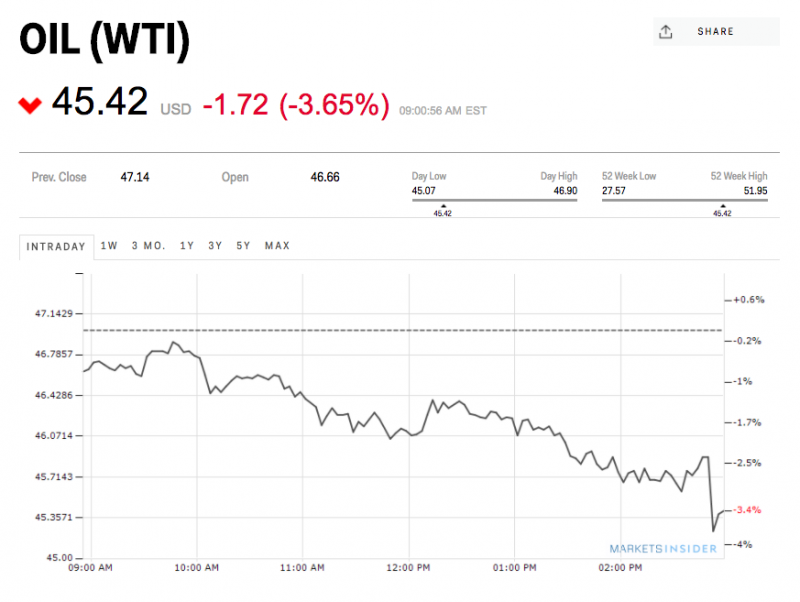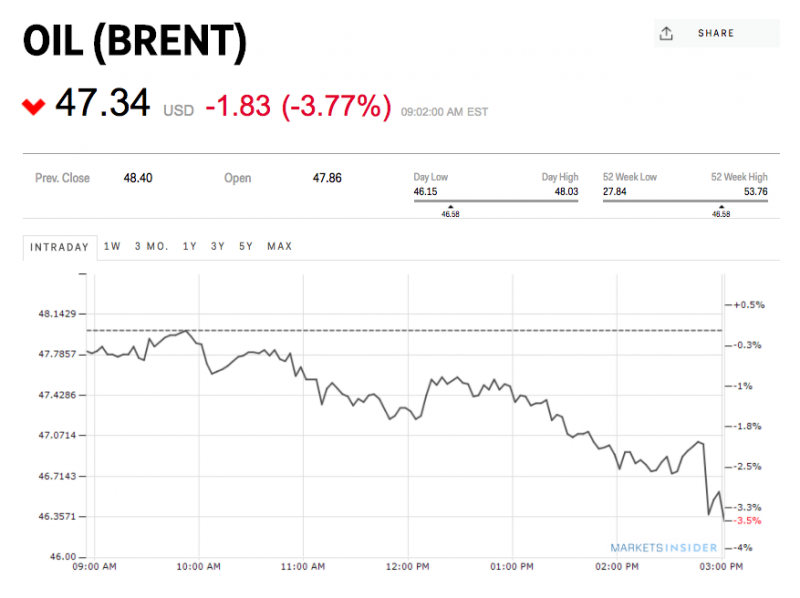The price of oil is crashing on Tuesday after Iran said that it won’t participate in any upcoming cut to production.
Major oil producers will meet in the Austrian capital, Vienna, to try to agree on the implementation of a production cut initially agreed on in September.
However, on Tuesday afternoon, Iran’s oil minister Bijan Zanganeh said that the country will leave production at the levels decided at OPEC’s meeting in Algeria in September. In short, Iran won’t cut its output.
“We will leave the level of production we decided on in Algeria,” Zanganeh told reporters when asked whetherIranwould cut output in tandem with other members of the Organization of the Petroleum Exporting Countries.
The news has sent the price of oil – which is notoriously jittery when it comes to news from OPEC – tumbling on Tuesday. At about 2:00 p.m. GMT (9:00 a.m. ET) both major oil benchmarks had slipped by more than 3.5% amid Iran’s refusal to participate in any cut.
Here's how West Texas Intermediate looks:

And here's Brent crude, the international benchmark:
In September, OPEC agreed to cap output at about 32.5 million to 33 million barrels a day versus the current 33.64 million in a move designed to prop up oil prices, which have dropped to less than $50 from more than $100 in 2014.
Since it reentered the international markets, Iran has wanted to raise production to regain the market share it lost under Western sanctions, when its political archrival Saudi Arabia increased output.
In recent weeks, Riyadh offered to cut its own output by half a million barrels a day, according to OPEC sources, and suggested Iran limit daily production at below 4 million. Tehran had previously sent mixed signals, including that it wanted to produce 4.2 million barrels a day.
Iraq has also been pressing for higher output limits, saying it needs more money to fight the Islamic State militant group.
The argument between Iraq and Saudi Arabia mainly focuses on whether Baghdad should use its own output estimates to limit production or rely on lower figures from OPEC's experts.
As tensions within OPEC mounted, Khalid al-Falih, the Saudi energy minister, said at the weekend that oil markets would rebalance even without an output-limiting pact. He had previously said Riyadh was keen for a deal.
Falih was not expected to land in Vienna before Tuesday evening, leaving little time for traditional advance discussions with other ministers.
